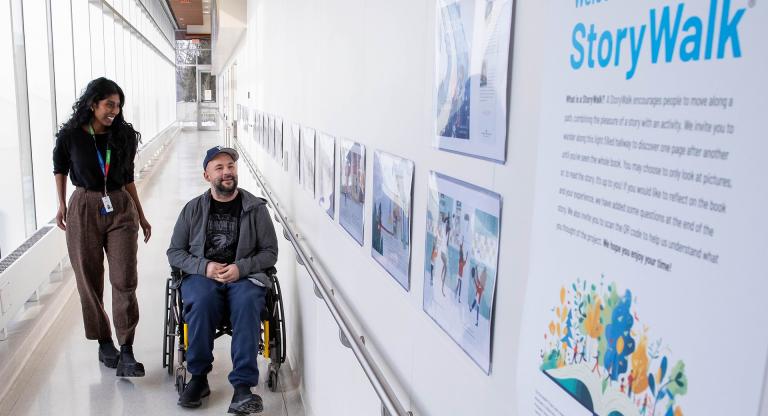Sinai Health scientist discovers important link between disruptions in ecosystem and cardiometabolic health

Dr. Caroline Kramer has always been interested in the connection between lifestyle and metabolic diseases.
As an endocrinologist and clinician scientist at the Lunenfeld-Tanenbaum Research Institute, much of her work is focused on identifying the interaction between obesity and the progression of metabolic diseases, such as diabetes.
In a paper recently published in medical journal The Lancet, Dr. Kramer and her colleagues evaluated the prevalence of cardiovascular risk factors over several decades in Brazilian Indigenous communities. They studied the association of urbanization with the cardiometabolic health of more than 20,000 adults from at least 33 Indigenous Brazilian ethnicities. The results showed that macro-social changes to Indigenous people’s traditional lifestyle due to urbanization were associated with an increase in poor cardiometabolic outcomes.
Dr. Kramer’s work was both professional and personal. She has Indigenous roots in Brazil on her father’s side (of mixed Tupi-Guarani ancestry). During the height of the COVID-19 pandemic, Dr. Kramer’s father passed away, which inspired her to learn more about her father’s family through her research. “Because of my dad passing away, I felt the need to become more informed about what was happening with Indigenous communities in Brazil.”
She points out that Brazil is one of the few countries where Indigenous communities exist with very restricted contact with Western society. According to the Brazilian Indigenous Agency, she says, there are more than 100 communities in the Amazon Rainforest they’ve never been in touch with. “These uncontacted communities still live like we all used to 500 years ago.”
Dr. Kramer studied the prevalence of obesity, hypertension and diabetes among these isolated Indigenous communities versus more urbanized centres. Unsurprisingly, the incidence of these conditions in rural communities was far lower.
However, what Dr. Kramer found astonishing was in some remote areas, obesity and diabetes simply didn’t exist. “When you look at what kind of food they eat, what kind of daily routine they have — it’s kind of the perfect lifestyle,” she explains.












